A fight for abortion rights in America's most pro-life state could ripple across the South
LITTLE ROCK, Arkansas — Kristin Stuart stood in the street, clipboard in hand, at a Pride festival in downtown Little Rock — the 200,000-person capital of the otherwise largely rural state.
Stuart was a volunteer collecting signatures for a ballot measure to reverse the state’s near total ban on abortions, which went into effect after the U.S. Supreme Courts’ Dobbs decision in 2022.
She and the other volunteers didn’t seem to mind the baking midday June heat as they sallied forth from their tent’s shade to engage the festively dressed passersby.
Mostly, she was met with enthusiastic responses, but she worked to explain the current ban even to those initially unsympathetic to the proposed constitutional amendment.
“Sometimes it changes their mind. Sometimes it doesn't,” she said. “But every signature counts.”
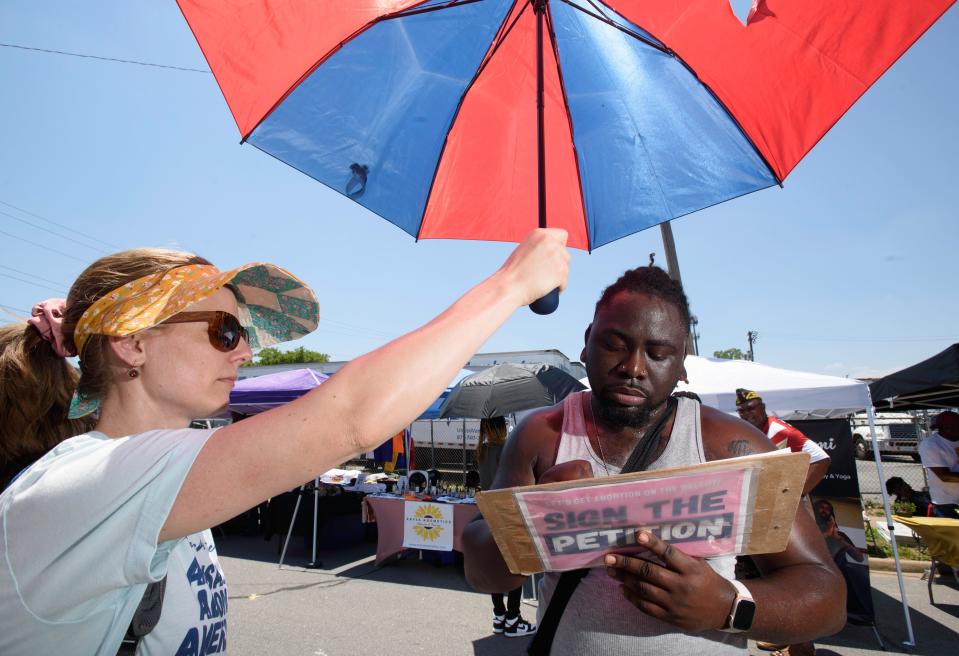
Even some Republicans have told Stuart the Arkansas law, which allows for abortion only to save the life of the mother, goes too far.
Arkansas, where Republicans control all three branches of government, has been ranked the most pro-life state for the past four years by the anti-abortion group Americans United for Life. In 2023, no abortions were performed here, according to the Arkansas Department of Health.
Organizers hope many Arkansas voters view abortion in less black-and-white terms than the state’s GOP leaders. To get the measure on the ballot — let alone win in November — they know they will need support from conservatives in a state that former President Donald Trump won in 2020 with 62% of the vote.
The Arkansas amendment is one of 10 proposed ballot initiatives across the U.S. to expand or restore abortion access. The Arkansas measure, however, is less permissive than the others, and not a single national abortion rights organization has officially backed the effort.
Even the name of the organizing committee, Arkansans for Limited Government, signals this different approach, one that supporters hope could be a model for other efforts across the conservative South to restore some access to abortion, even if it isn’t to the level guaranteed by Roe v. Wade.
“We do have a lot of folks in more rural counties and smaller counties who are not supportive of abortion, but even more so they’re not supportive of the government intervening in it,” said Lauren Cowles, executive director of Arkansans for Limited Government.
The birth of a ballot measure
Ezra Smith had pretty much given up on Arkansas politics. After college, he worked on political campaigns. He was elected president of the Young Democrats of Arkansas in 2013 and traveled to all 75 counties in the state. He watched as Republicans took power in the state that launched the career of President Bill Clinton.
“We were fighting a huge tide. I said, ‘Not only is it unproductive, but it’s really hard personally to deal with,’” said Smith, a lawyer in Fayetteville, the home of the state’s flagship university and one of the few islands of blue in the conservative state.
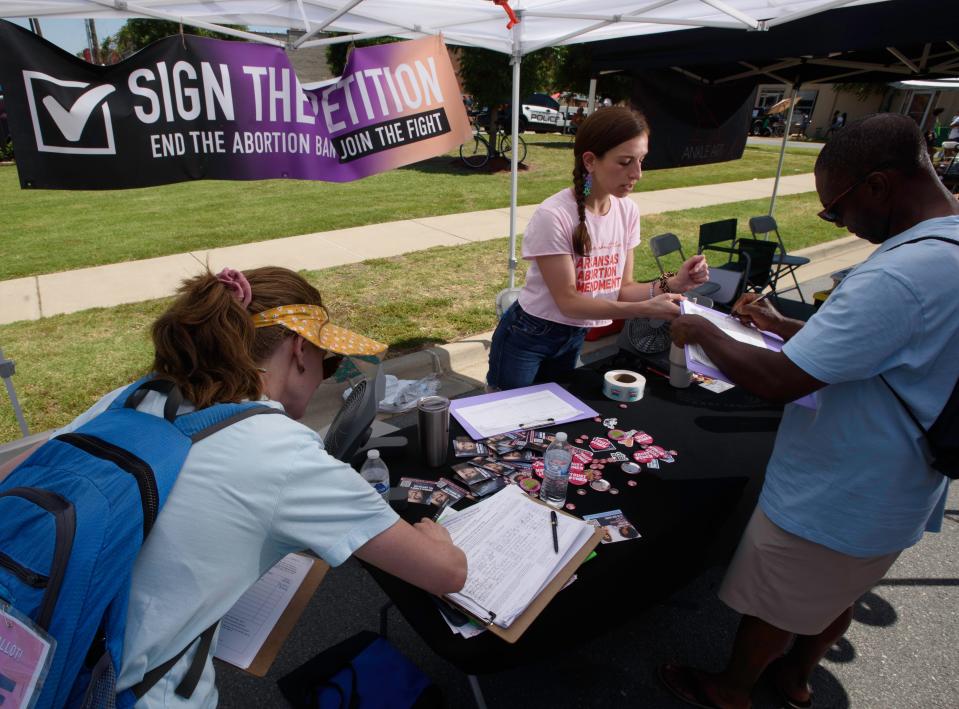
He saw Arkansans abandon Democrats over two issues: a dislike of President Barack Obama and abortion.
This year, Smith returned to politics, coordinating volunteers collecting signatures across the state for the abortion ballot measure. Abortion, the issue that once made Smith feel defeated, could be a winner this election. But with Arkansas’ near total ban on abortion, the issue feels more urgent to him than party politics.
“I don’t really care about this being a helpful issue for Democrats,” he said. “That’s not why I’m doing this."
Smith was part of a group of Arkansans that began talking after the U.S. Supreme Court issued the Dobbs ruling in June 2022 and Arkansas’ trigger ban went into effect. By November, they registered a ballot question committee called Arkansans for Limited Government.
Abortion bans across the US: Which 14 states have abortion bans?
The name was chosen to cast Arkansas’ abortion ban as government overreach and win the support of conservative voters wary of government power.
The Arkansas Family Council, which advocates for Christian policies, rejects the idea that allowing wider access to abortion would be a check on government power. But Jerry Cox, the group’s founder and president, does worry the argument could sway some conservative voters in the state.
“The voter I’m most concerned about are the people who take an extreme libertarian view,” Cox said.
Even though the ballot measure is more restrictive than similar efforts in other states, it covers 99% of the abortions performed in Arkansas before Dobbs, according to Arkansans for Limited Government.
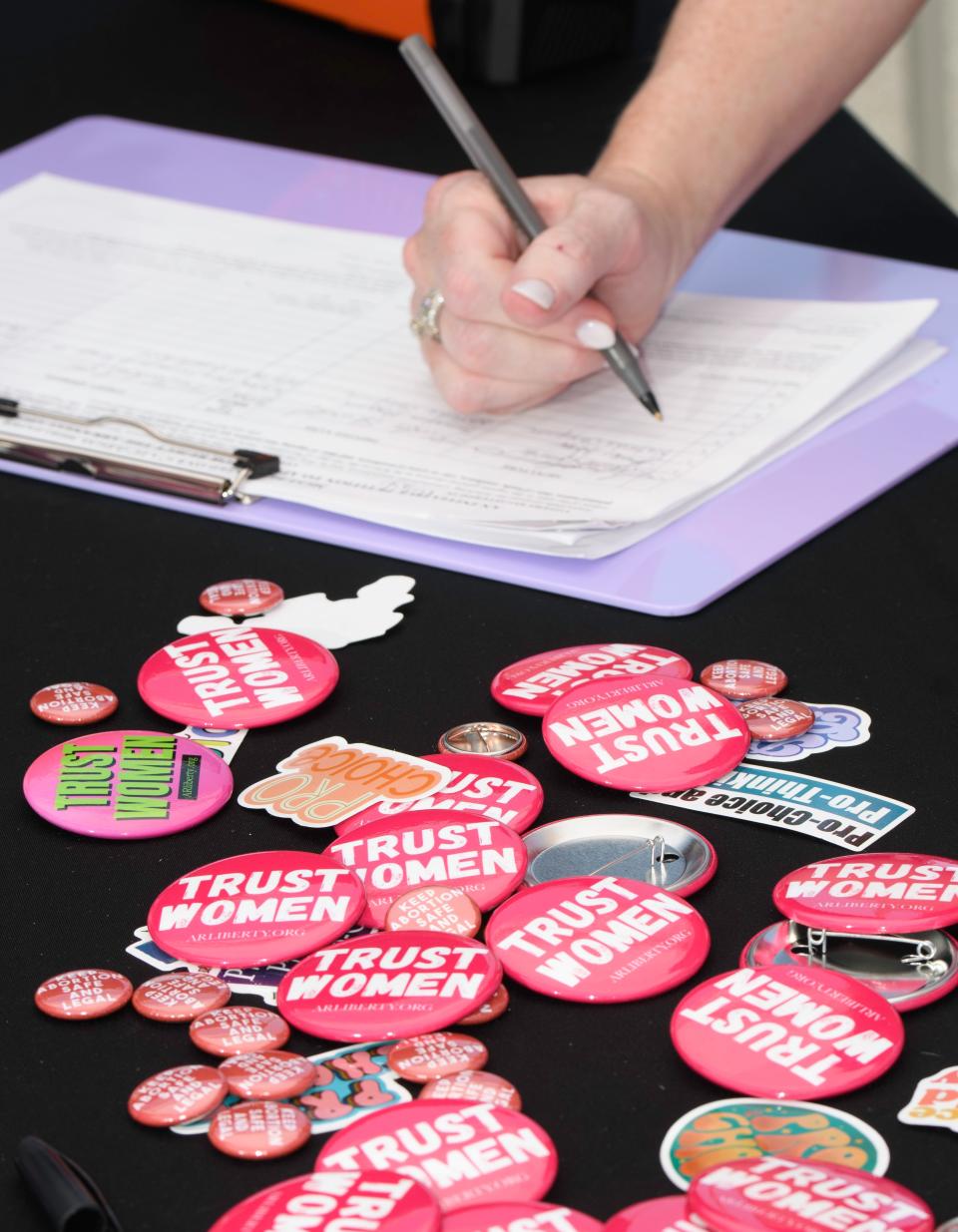
Before Roe was overturned, abortions were legal nationwide without state restrictions until the 24th week of pregnancy.
“We found 18 weeks seems to be a timeframe at which most Arkansans are comfortable,” Cowles said. “You start using the word ‘viability’ and 24 weeks and many Arkansans are uncomfortable with that.”
Women in Arkansas are still getting abortions, if they can travel. Last year, more than 2,600 women in the state went to Kansas and Illinois for the procedure, according to data from the Guttmacher Institute, an abortion rights research organization. Before Dobbs, roughly 3,000 abortions were performed annually in Arkansas.
The organizers also think the reality of living in a state where abortion is only available to save the life of a mother, but not to preserve her health, has changed attitudes about the procedure.
“The number of stories I’ve heard from people on why they’re signing, I think the evidence is there that this has left the political buzzword space and become a reality to so many people,” Smith said.
The politics of abortion
Even before the Dobbs decision, Americans’ views on abortion were more complex — and less passionate — than the political rhetoric would suggest, said Steven Greene, a political science professor at North Carolina State University who has studied the subject for decades.
“There really are a lot of people who think abortion should be mostly legal, but they aren’t quite sure when and don’t have the strongest feelings on it,” Greene said.
Region by region: How these states could broaden abortion access
Lynette Panique, a volunteer who was canvassing at the Pride event in Little Rock for the ballot measure, inhabits that middle ground of the abortion debate. Until 10 years ago, she would have called herself “strictly pro-life.”
“Even as a Christian,” she said, “I still believe in the right to choose, just because it’s not a black and white issue.”
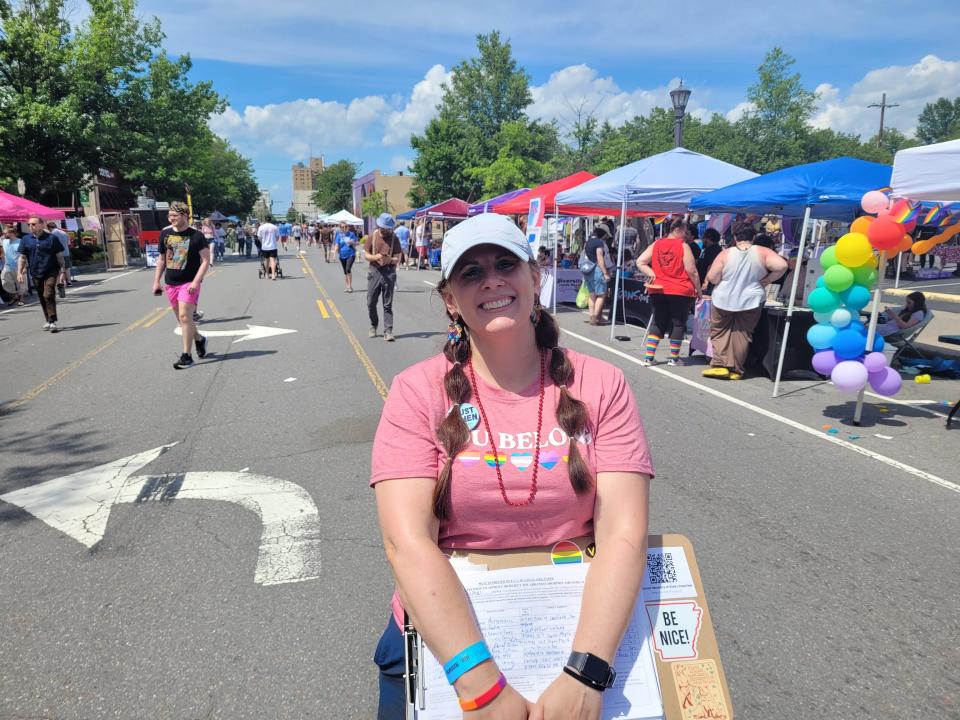
Republicans’ staunch opposition to abortion appealed to a passionate base, Greene said. The protections Roe v. Wade provided for 50 years meant that Republicans with more ambivalent attitudes on abortion could view their party’s fierce anti-abortion stance as merely rhetorical.
The Democratic Party, Greene said, has also hardened its stance on abortion in recent years.
“People (in the party) have said we need to be proud of abortion and we just need to defend that,” he said. “I think that’s bad politics.”
What a win in Arkansas would mean nationally
So far, national abortion rights organizations have not backed the Arkansas ballot initiative. Planned Parenthood objects to an 18-week limit on abortions. The organization believes that with more years of on-the-ground organizing in the state, Arkansas voters would accept abortion access without time limits.
“The work is not yet done,” said Sarah Standiford, the national campaign director for the Planned Parenthood Action Fund. “I think there’s an opportunity to create a longer onramp to a measure that will more fully provide care and restore care.”
But the Arkansas ballot organizers say they cannot wait. State politicians have been working to curtail the ability of voters to introduce ballot measures. The legislature recently increased the threshold for how many counties need to be represented to get a measure on the ballot from 15 to 50.
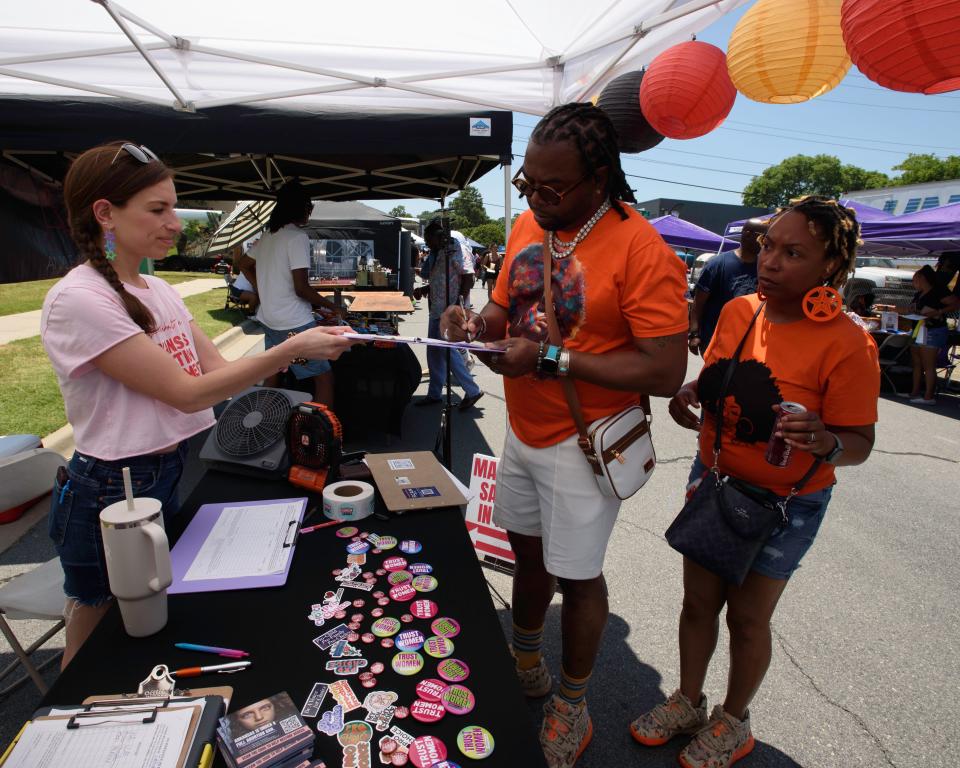
“State legislatures are trying to eliminate this process for enacting citizen driven change,” Cowles said.
The ballot organizers are confident they will submit more than the required 90,704 signatures needed by the July 5 deadline.
"If it qualifies, I believe it will pass,” said Janine Parry, an expert on direct democracy at the University of Arkansas. “The current policy of basically a total ban has only been supported by about 15% of Arkansans for 30 years."
Cox of the Arkansas Family Council, however, thinks the organizers have misjudged their fellow Arkansans.
“Arkansas is a much more conservative state than Ohio or any other state where abortion has been on the ballot,” he said.
A win in a deep red, Southern state could upend the national debate on abortion, the organizers believe. It could make Republican politicians, they say, rethink their support for anti-abortion measures nationwide.
Still, Greene, the political scientist, is skeptical a win for abortion rights in Arkansas would have an effect beyond the state.
When abortion is presented as a ballot measure, voters have supported easing restrictions, even in conservative states like Ohio. But those same voters still elect politicians who oppose abortion. And in the South, only Arkansas, Florida and Oklahoma currently allow voter-driven ballot measures.
Most voters, Greene believes, support some abortion access, but the issue is not a high enough priority to determine which politicians they elect.
“I think the evidence is pretty clear that state legislators who vote for very extreme bans do not seem to be punished for it,” he said. “Certainly not in red states.”
This article originally appeared on Fort Smith Times Record: Arkansas abortion ballot measure lacks national support. Here's why.
